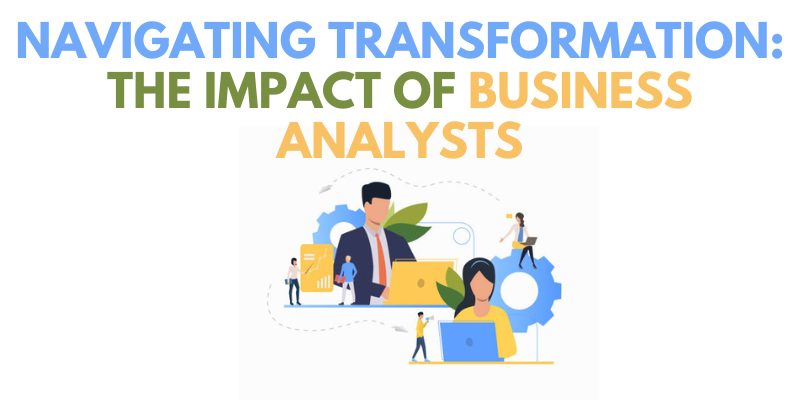Change is the only constant in today’s continuously changing corporate world. Organisations that can adapt to new problems and embrace new opportunities will prosper. This is where the role of business analysts as change agents becomes crucial. In this blog, we will delve into the transformative power of business analysts and how they can drive organizational change and innovation through their insights and recommendations.
The Evolving Role of Business Analysts
Traditional vs. Modern Business Analysis
Traditionally, business analysts were often seen as individuals who gathered and documented requirements for IT projects, a role that remains a fundamental aspect of their work. However, in the context of MBA Digital Marketing In Chennai, modern business analysts have transcended this traditional role. They have evolved into strategic thinkers who play a pivotal role in shaping an organization’s direction.
The Change Agent Mindset
To be effective change agents, business analysts need to adopt a mindset that embraces change. They should be proactive in seeking out opportunities for improvement and innovation, whether it’s streamlining processes, identifying cost-saving measures, or enhancing customer experiences.
Driving Change through Insights
Data-Driven Decision-Making
In today’s data-rich environment, business analysts have access to a wealth of information. By leveraging data analytics and business intelligence tools, they can provide insights that guide decision-making. These insights help organizations make informed choices that can lead to significant transformations.
Identifying Trends and Market Shifts
Business analysts, especially those pursuing their education at the Best MBA Colleges In Chennai, are well-positioned to monitor industry trends and market shifts. By staying attuned to these changes, they can recommend strategic pivots and adjustments that keep the organization competitive and agile.
Recommendations and Implementation
Stakeholder Engagement
Change can be met with resistance, and effective communication is essential. Business analysts excel at engaging with stakeholders, including executives, department heads, and front-line employees, to ensure that recommendations are understood and embraced at all levels of the organization.
Agile and Iterative Approaches
Business analysts can champion the adoption of Agile methodologies within an organization. Agile promotes flexibility, collaboration, and continuous improvement—key elements in driving meaningful change and innovation.
Measuring Impact and Success
Key Performance Indicators (KPIs)
Business analysts can establish KPIs that align with proposed changes. These metrics serve as benchmarks to measure the impact of change initiatives. Regularly tracking KPIs provides feedback on the success of implemented changes.
Feedback Loops
Feedback from employees and customers is invaluable in refining and optimizing change efforts. Business analysts can facilitate feedback loops to ensure that changes are meeting their intended objectives and making necessary adjustments when required.
Conclusion
Business analysts, especially those with a background in MBA In Data Analytics, are not just observers of change; they are catalysts who drive it. Their unique position allows them to gather insights, make informed recommendations, and facilitate the implementation of transformative initiatives. Business analysts play a pivotal role in helping organizations navigate the ever-evolving business landscape by adopting a change agent mindset and leveraging their analytical skills. In an era where adaptability is the key to survival, their contributions, particularly in the context of MBA In Data Analytics, are more valuable than ever in driving organizational change and innovation.
